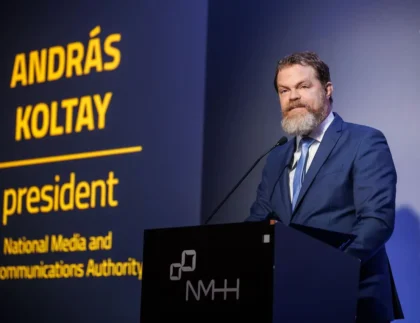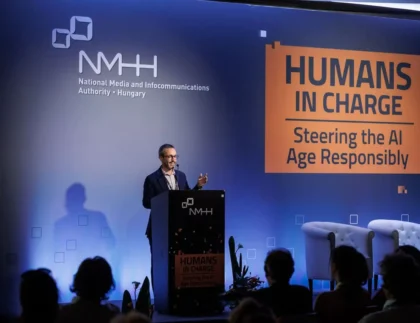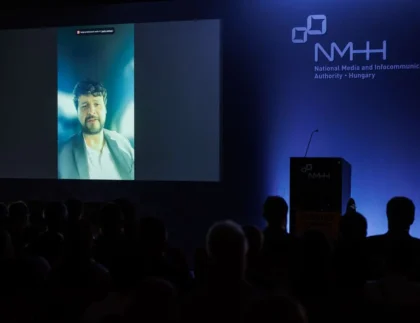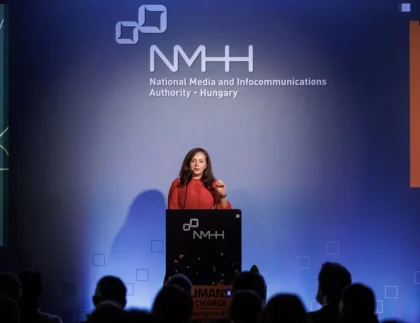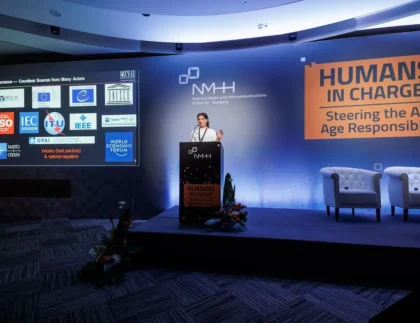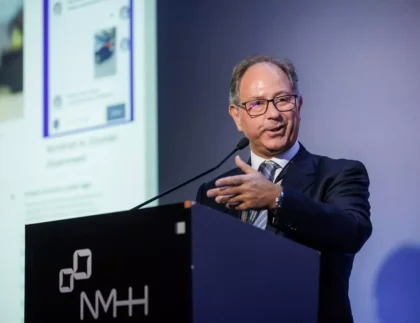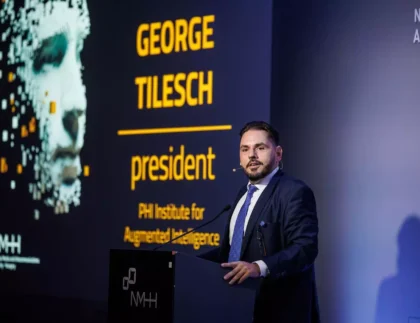The President of the National Media and Infocommunications Authority, emphasized the need for collaboration among researchers, developers, and decision-makers for ethical AI development and usage. Koltay called for further exploration of the AI's legal implications, data protection, and vital ethical standards.
As Data & AI Lead for Public Sector & Health at Microsoft Spain, Sanchez highlighted the need for collaboration between government and private sector in managing AI. He underscored the importance of a cautious yet optimistic approach referencing Spain's AI strategy and the potential for other EU countries to adopt the AI Sandbox model.
Brando, co-rapporteur of the EU’s Artificial Intelligence (AI) Act, said that the title of the NMHH conference encapsulated perfectly what they wanted to achieve with the new Community legislation: a set of human-centred rules that allow strong human oversight, minimise risks and promote the reaping of the benefits.
Maria Luciana Axente, a renowned AI ethics expert and advocate for children's rights, focused on child protection in the digital age. She explored the opportunities AI offers in education and health but warned of its darker side, including reducing human interaction crucial for childhood development.
Olivia addressed the issue of AI regulation, noting its current inconsistencies and suggesting the adoption of a risk-based approach of AI governance. She also suggested AI governance could either be handled by a dedicated regulatory authority or multiple specialized agencies, provided there is coordination and expertise in AI and machine learning.
Italian researcher and AI4GOV founder Gianluca Misuraca emphasized the importance of managing AI's potential benefits and risks for public services and society. Misuraca noted government's role as AI regulator, user and facilitator, and highlighted the challenge of adopting AI in public services while protecting citizens, especially under uncertain outcomes.
At the "Humans in Charge - Steering the AI Age Responsibly" conference, George Tilesch, international expert and PHI Institute for Augmented Intelligence's founding president, emphasized on the convergence of technology, regulation and social inclusion in anticipation of AI Act's implementation. He expressed the vital need for proactive planning and hoped the conference’s insightful discussions would help Hungary prepare for its upcoming EU presidency.


